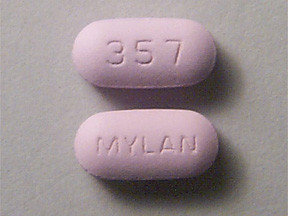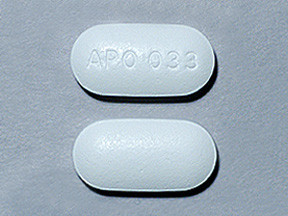PENTOXIFYLLINE SUSTAINED-ACTION - ORAL
PHONETIC PRONUNCIATION: (PEN-tox-IF-i-lin)
COMMON BRAND NAME(S): Trental
GENERIC NAME(S): pentoxifylline
Uses
USES: This medication is used to improve the symptoms of a certain blood flow problem in the legs/arms (intermittent claudication due to occlusive artery disease). Pentoxifylline can decrease the muscle aching/pain/cramps during exercise, including walking, that occur with intermittent claudication. Pentoxifylline belongs to a class of drugs known as hemorrheologic agents. It works by helping blood flow more easily through narrowed arteries. This increases the amount of oxygen that can be delivered by the blood when the muscles need more (such as during exercise) thereby increasing walking distance and duration.
How to use PENTOXIFYLLINE SUSTAINED-ACTION - ORAL
HOW TO USE: Take this medication by mouth with food, usually 3 times daily or as directed by your doctor. Do not crush or chew this medication. Doing so can release all of the drug at once, increasing the risk of side effects. Also, do not split the tablets unless they have a score line and your doctor or pharmacist tells you to do so. Swallow the whole or split tablet without crushing or chewing. Dosage is based on your medical condition and response to treatment. Use this medication regularly in order to get the most benefit from it. To help you remember, take it at the same times each day. It is important to continue taking this medication even if you feel well. Do not stop this medication without consulting your doctor. Improvement in symptoms can occur in 2-4 weeks, but it may take up to 8 weeks to get the full benefit. Tell your doctor if your condition persists or worsens.
Side Effects
Precautions
Interactions
Overdose
Images

- color
- lavender
- shape
- oblong
- imprint
- MYLAN, 357

- color
- lavender
- shape
- oblong
- imprint
- MYLAN, 357

- color
- lavender
- shape
- oblong
- imprint
- MYLAN, 357

- color
- lavender
- shape
- oblong
- imprint
- MYLAN, 357
Reviews
Faq for PENTOXIFYLLINE SUSTAINED-ACTION - ORAL
Pentoxifylline sustained-action is used to improve blood flow and reduce symptoms in patients with certain circulation disorders, such as peripheral artery disease or intermittent claudication.
Pentoxifylline sustained-action is a vasodilator that helps to widen blood vessels and improve blood flow. It also reduces the stickiness of red blood cells, making them less likely to clot.
Common side effects of pentoxifylline sustained-action include nausea, vomiting, stomach pain, diarrhea, dizziness, headache, and skin rash. If these symptoms persist or worsen, it is important to consult a healthcare professional.
Pentoxifylline sustained-action should be taken exactly as prescribed by the healthcare provider. Typically, the medication is taken with food to minimize stomach upset. The tablets should not be crushed, chewed, or broken.
Pentoxifylline sustained-action should be used with caution in patients with bleeding disorders, liver or kidney disease, or a history of seizures. It may interact with certain medications, so it is important to inform the healthcare provider about all current medications and medical conditions.
The effects of pentoxifylline sustained-action may not be noticeable immediately. It may take several weeks or even months of regular use before improvement in symptoms is observed. It is important to continue taking the medication as prescribed, even if no immediate effect is noticed.
The use of pentoxifylline sustained-action during pregnancy or breastfeeding should be discussed with a healthcare provider. It is generally not recommended unless the potential benefits outweigh the risks.
No, pentoxifylline sustained-action is not addictive. It is a prescription medication that should be used as directed by a healthcare professional.
Pentoxifylline sustained-action may interact with certain medications, including blood thinners, antiplatelet drugs, anticoagulants, and certain antibiotics. It is important to inform the healthcare provider about all current medications to avoid potential interactions.
Disclaimer
IMPORTANT: HOW TO USE THIS INFORMATION: This is a summary and does NOT have all possible information about this product. This information does not assure that this product is safe, effective, or appropriate for you. This information is not individual medical advice and does not substitute for the advice of your health care professional. Always ask your health care professional for complete information about this product and your specific health needs.

No Reviews Yet